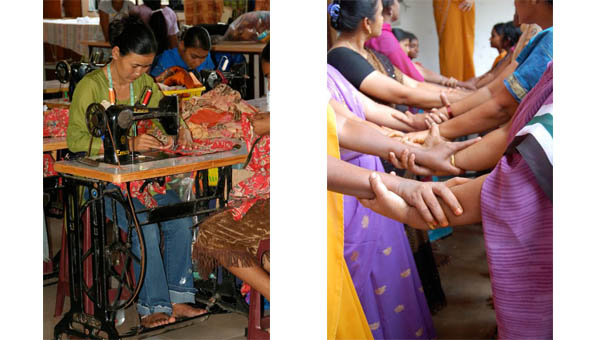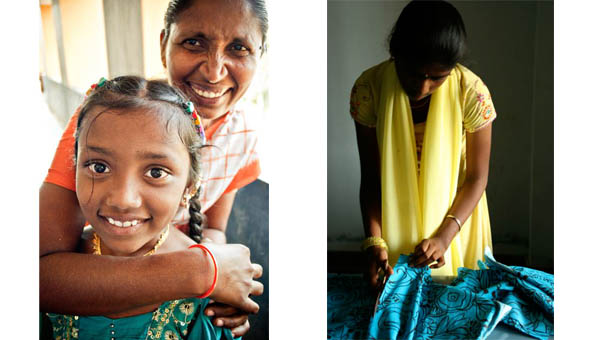Purse Strings: International Princess Project
SHANNON KEITH &
THE INTERNATIONAL PRINCESS PROJECT
Twelve years into the new millennia, it’s nearly impossible to believe that there are an estimated 27 million people living in bondage around the globe. Recent studies show that human trafficking now ranks second (to narcotics) as the world’s most lucrative illicit industry. As Founder of the International Princess Project, Shannon Keith and her team work tirelessly to not only assist women and children in their efforts to escape bondage, but to also help restore them to happy, healthy and productive lives going forward. We recently chatted with her about the amazing work they do, and ways that each of us can assist in eradicating this hideous global crisis.
Wiles: WHAT IS YOUR BACKGROUND AND WHAT WAS YOUR CAREER BEFORE YOU FOUNDED International Princess Project?
SK: I’m originally from Southern California. Although I originally worked in corporate America in sales, I’ve always had a heart for poor people in developing countries – particularly women and children who oftentimes don’t really have a voice or forward momentum in society. I had done a lot of traveling with my husband – who is a pastor – and we’d worked together on outreach and community building efforts in both the United States and abroad. We traveled to India in both 2004 and 2005 and were deeply saddened by the conditions we saw there.
Wiles: You’ve been quoted as saying that you were compelled to start International Princess Project after your trip to India in 2005. What did you see and experience on that trip that moved you so?
SK: While in India, we partnered with a group that was working in the red light district. One of our main objectives was to provide nutrition to the women who were trapped in the sex slave trade, as well as to the children who were born as a result of that trade. It may be difficult to believe, but the women and children there are essentially invisible. Their “slave owners” don’t see them as an investment – they see them as a commodity – so they don’t take care of their health or seek treatment for the sexually transmitted diseases the women contract. When they die, the slave owners simply fill their bed with a fresh person.
We We helped in a medical clinic/community center that our partner, Harvest India, established to address some of the women and children’s medical and nutritional needs.
As a nation, India has little safety nets; social aid programs like CPS and welfare, so the work to help these women and children rests primarily on the shoulders of NGO’s (non-governmental organizations.)
I was totally devastated by the conditions there; and even though I felt powerless, I couldn’t live with myself if I didn’t do anything about it. I knew we had to do something to help both the people trapped in the trade, as well as the organizations working to help the victims.
Wiles: HOW ARE WOMEN AND CHILDREN BEING ENSLAVED AND TRAFFICKED IN THIS DAY AND AGE? And what are some of the societal ills that are contributing to this?
SK: It all boils down to economics. Prostitution and child labor – both of which are results of human trafficking – are very lucrative businesses. A lot of human trafficking is undergirded through organized crime because human trafficking is the easiest illicit business to get away with. There are no dogs to sniff out the “product,” and humans yield more profit than guns or drugs because they can sell their bodies over and over again – sometimes as frequently as 10-20 times a day.
Economics also make the victims easy prey. Typically, they’re poor, uneducated and are lured away from their homes in rural areas by promises of jobs when they come to the city. By the time they are kidnapped and taken to a strange land where, oftentimes, they don’t speak the language, they don’t know anyone and they have no one to advocate for them, it’s too late and they’re trapped.
We should also be honest about the fact that human trafficking is prevalent here in the United States, as well. Our homeless teen population is a huge target for traffickers; and it’s been documented that thousands of young girls are regularly trafficked for major sporting events.
Wiles: ONCE FREED FROM THE TRADE, WHAT ARE SOME OF THE ISSUES THE SURVIVORS GRAPPLE WITH? HOW DOES INTERNATIONAL PRINCESS PROJECT HELP THEM HEAL?
SK: The women in the brothels are like the living dead – they’re literally lifeless. The healing process is deep and long – removing them from brothel is only step one. On top of the physical illnesses and malnutrition, they must heal from the sexual abuse they’ve endured. The emotional layers are also quite deep because the trauma they’ve suffered is so complex. They must heal from trust issues and learn how to be a part of a community, again.
Typically, these women have no education. Most are illiterate and can’t get jobs, so they need a vocation. We’re able to provide centers where the women live like sisters so they can build trust and a sense of community. We also offer group therapy sessions and workshops where they can learn how to manage money and basic life skills.
Our parnters run aftercare homes that offer group sessions. When the women come to the aftercare homes (like safe houses for domestic violence) they’re able to get safe and on their feet. When they’re ready, they get to choose a vocation to study so that they can become self-sufficient. When they choose sewing as their vocation, we pay for their training, and materials. We currently have three sewing centers where 155 women live and work for about 4-5 hours/day. They also take advantage of group therapy and exercise classes. The sewing centers are like an oasis and a real retreat for them.
The human spirit and resilience are remarkable. Within a few months, there is such joy in their eyes and the sisterhood and freedom they feel really make for an incredible transformation in them.
Wiles: DESCRIBE THE CONCEPT OF PUNJAMMIES.
SK: In many places in India, wearing traditional women’s clothing like saris is still the norm. Saris are such a beautiful part of their culture and I wanted to utilize them in some meaningful way. I knew American women wouldn’t wear saris, but we do wear pajamas. We ultimately decided to make pajamas inspired by saris and call them PUNJAMMIES™.
The women sew the punjammies and we sell them either through “Punjammies Parties” that women in the U.S. host for family and friends, or through our online store. Each punjammies purchase helps us assist our women and children in rebuilding their lives.
We should note that punjammies aren’t a “charity buy.” Each pair is handmade and touched by a team of anywhere from 6-8 women. Punjammies are a beautiful product made by intelligent, capable women who were robbed of opportunity, in the past, and are now working hard to build bright futures for themselves.
Wiles: WHAT ARE YOUR ULTIMATE GOALS FOR INTERNATIONAL PRINCESS PROJECT?
SK: Eventually we’d like to expand our operations into other countries, but there is still a lot of work to be done in India. Southeast Asia, in general, is a hotbed for human trafficking. With its caste system and arranged marriages, destitute poverty, and no social welfare programs, India is the perfect storm for trafficking.
Human beings should never be allowed to own one another. As Americans, we need to remember our own struggle with slavery and do a better job of connecting the dots. The commodities we buy and the technology we use is often made by trafficked individuals. We can each fight human trafficking with our pocketbooks. Our nation consumes one third of the world’s goods. Economics is the reason for the problem, and it’s going to be a huge part of the solution, too.
I would urge everyone to hold corporations accountable and demand that everything be done in fair trade. As long as the American consumer insists on buying the cheapest goods possible, then we quietly endorse immoral business practices like child labor. We can be a part of the solution by being educated and educating our friends. We can hold our favorite retailers responsible. And by doing so, we do can literally save people’s lives.
For more information about International Princess Project, please visit: intlprincess.org
You can also purchase punjammies directly by visiting: punjammies.com.

